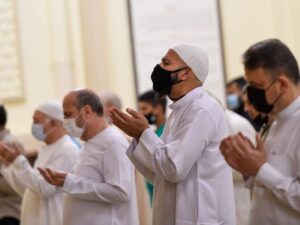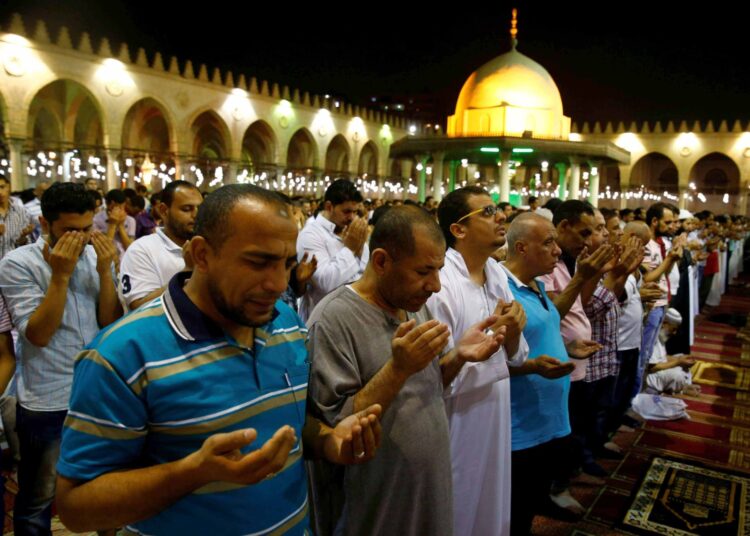Taraweeh prayer is one of the specialties of Ramadan nights. For the entire month, Muslims line up at night to observe a number of optional prayers and listen to and reflect on the recitation of the Holy Quran.
Taraweeh is derived from the Arabic word meaning, “to rest and relax”, as it is seen as a special form of Islamic meditation.
In the last year of his life, Prophet Mohammed (Peace Be Upon Him), came out one night and prayed taraweeh. On that night, some people prayed with him. During the second night, word spread and more people joined in taraweeh. Even more people attended on the third night. On the fourth night, the mosque was packed and the people awaited the Prophet’s arrival.
The Prophet, however, prayed at home by himself. After dawn prayer, he said: “Nothing prevented me from coming out to you except the fact that I feared that it would be made obligatory for you.”
From the time of Caliph Abu Bakr to the beginning of Caliph Omar’s time, people performed taraweeh either individually or in small groups. Later, Caliph Omar gathered everyone behind one imam and they prayed 8 rakats. Eventually, it was increased to 20 rakats.

There are many rewards for praying the taraweeh. The Prophet said: “Whoever stands for prayer (the night prayer) during the holy fasting month of Ramadan with iman (faith), hoping for rewards, then all his/her previous sins will be forgiven.”(Narrated by Bukhari and Muslim)
Additionally, as the rewards for good deeds are multiplied during the month of Ramadan, the rewards for taraweeh are even greater. The Prophet said: “Whoever draws nearer (to Allah) by performing any of the (optional) good deeds in this month shall receive the same reward as performing an obligatory deed at any other time, and whoever discharges an obligatory deed in this month shall receive the reward of performing seventy obligations at any other time.” (Narrated by Ibn Khuzaymah)
Praying taraweeh in congregation at mosques has more rewards than performing it at home. This does not mean it cannot be carried out at home, especially when there is a lockdown. It can be performed at home, alone or in congregation with family and friends.






Discussion about this post